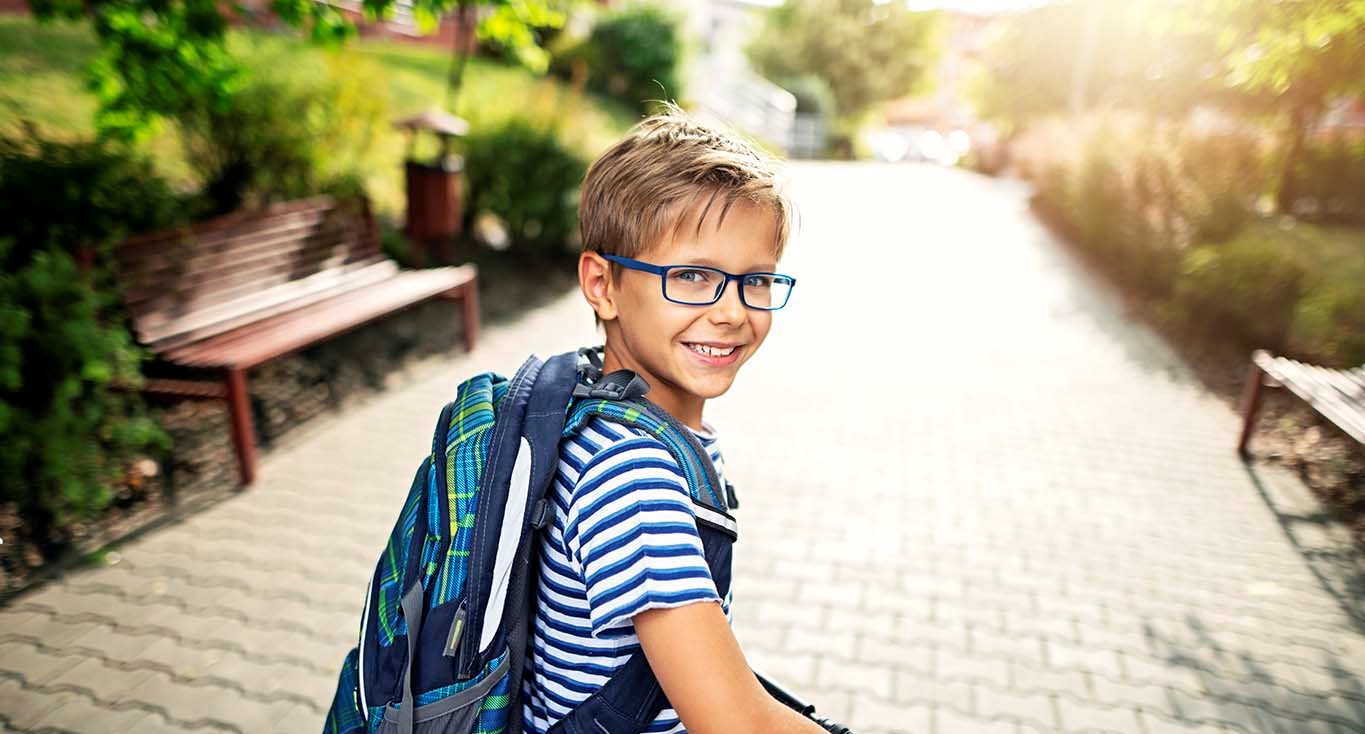Does my child need glasses?

No studies have been carried out on how many children wear glasses. But according to Thiele’s own figures, about 3-4% of children age four to six wear glasses. This number increases to almost 12-15% of 16-year-olds. (Source: Thiele.dk)
Children are often not even aware themselves that they have poor eyesight. They are used to seeing the world through their eyes and know nothing else. As well as this, they often compensate for their poor eyesight by using the other senses etc. For these reasons, it is important to pay particular attention to a child’s eyesight. Vision develops during the child’s first 12 years, with the most critical period being from new-born to six years of age. Failure to spot a possible need for glasses and/or a need for vision therapy treatment during the most critical period can result in poor eyesight as an adult. The earlier it is detected, the better the chances are of correcting poor eyesight.
The paediatric examinations carried out by your GP and the school nurse aim, amongst other things, to make an assessment of whether there may be a need for glasses. But there are a number of signs you should pay particular attention to when it comes to spotting the signs. If you have problems with eyesight in the family, you should pay extra attention, as certain eyesight disorders can be hereditary.
Read more about vision development here.
Checklist for assessing a child’s eyesight
Listed below are a number of symptoms that may indicate that a child needs to wear glasses, and which ought to be examined further by an eye doctor. If there are family members who suffer from eyesight disorders and wear glasses, then you should also be extra vigilant, as the child may have an inherited condition.
- Crossed eyes – an eye pulls either towards the nose or towards the ear, either constantly or periodically.
- Closes one eye
- Blinks a lot/rubs their eyes
- Problems with headaches or sore eyes
- Sits close to the screen or holds the book close to their face and/or will not sit for a long time in front of a screen or with a book.
- Difficultly maintaining concentration
- Complaints about blurred vision
- Seems clumsy in relation to peers
- Holds their head at an angle to focus
If you notice one or more of the above symptoms in your child, it is a sensible idea to have an eye doctor examine the child’s vision.
Paediatric eye assessment
in many countries children are offered a number of health assessments during their childhood. One of the goals of these is for the doctor to assess the child’s eyesight. However, as the child’s vision develops hugely during this period, with rapid changes over short periods of time, it is important to be vigilant about their eyesight in the in-between periods. Contact the doctor if you are unsure as to whether your child is able to see normally.
Gut feeling
Listen to your gut … more often than not your gut feeling is right when it tells you that something is wrong here. Listen to it and get your child checked, so you can gain clarification as to what is going on in and hopefully give yourself peace of mind.
Visiting the eye doctor
Do you want to book an appointment at your eye doctor? Then read this page ‘Visiting the eye doctor’ and make sure you are prepared.
